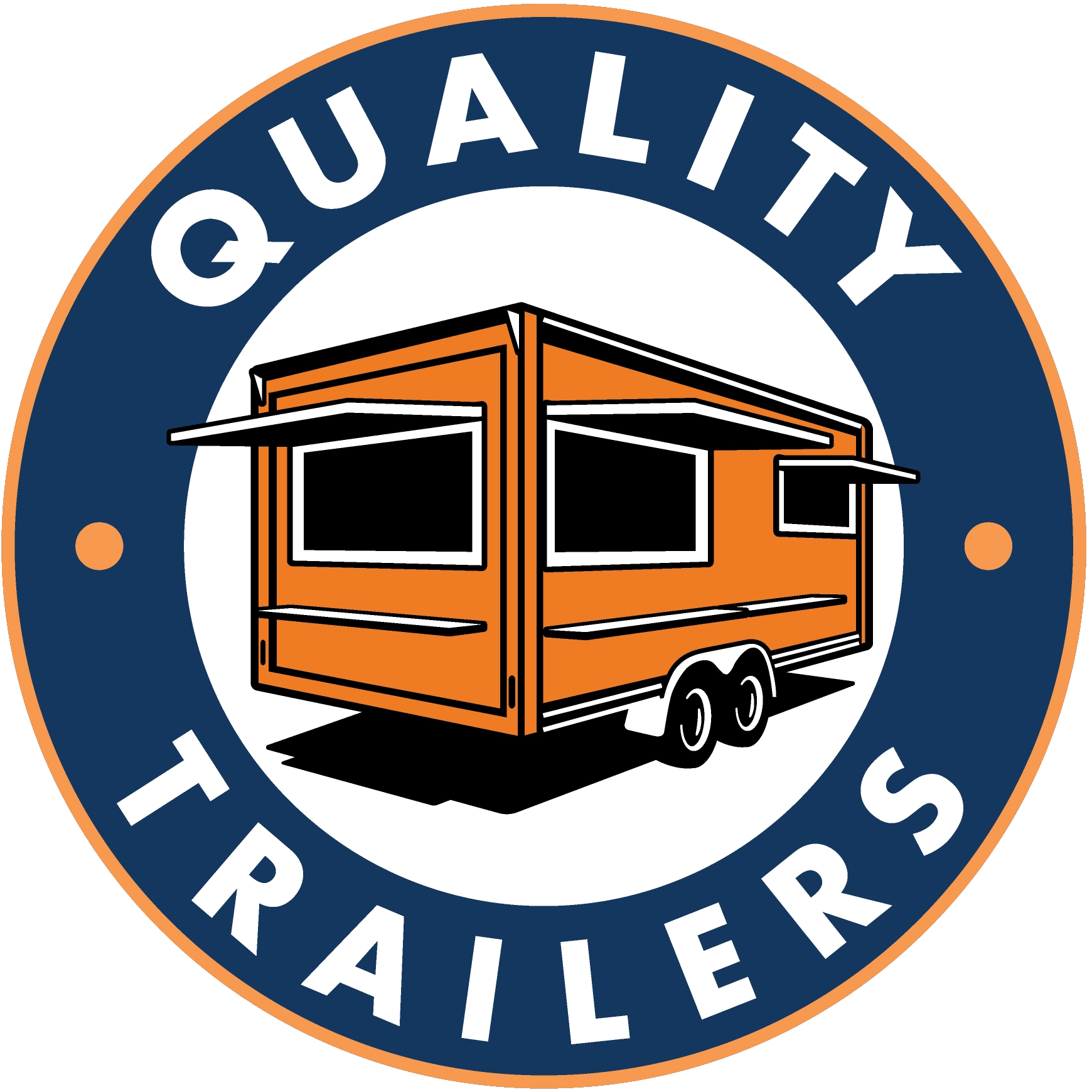How to Choose the Right Custom Food Truck Builder
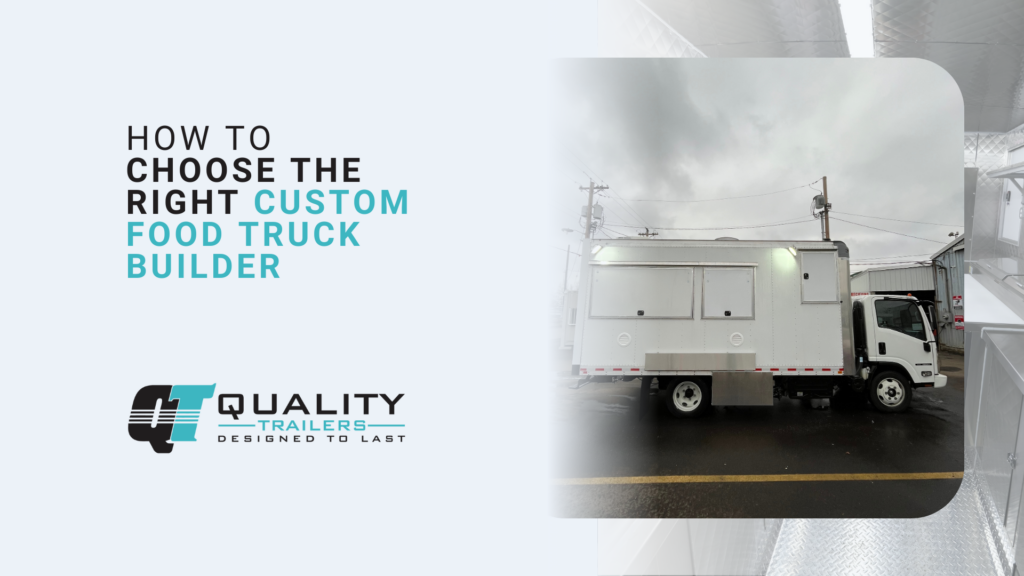
Starting a mobile food business requires more than just a great menu and entrepreneurial spirit. The foundation of your success begins with selecting the right partner to build your mobile kitchen. Whether you’re launching your first venture or expanding an existing operation, understanding how to evaluate and choose a builder can mean the difference between […]
Tips for Choosing the Best Concession Food Trailers
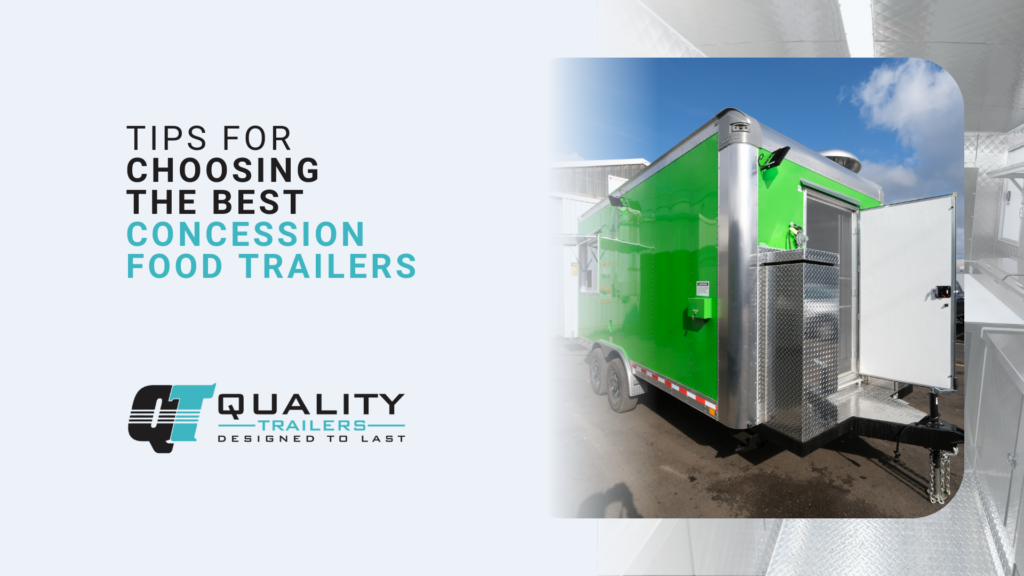
Selecting the right concession food trailer represents one of the most critical decisions you’ll make as a mobile food entrepreneur. Whether you’re launching your first venture or expanding an existing operation, the trailer you choose will directly impact your daily operations, profitability, and long-term success. This comprehensive guide walks you through the essential considerations for […]
Beginner’s Guide to Semi Food Trailer Repair Maintenance
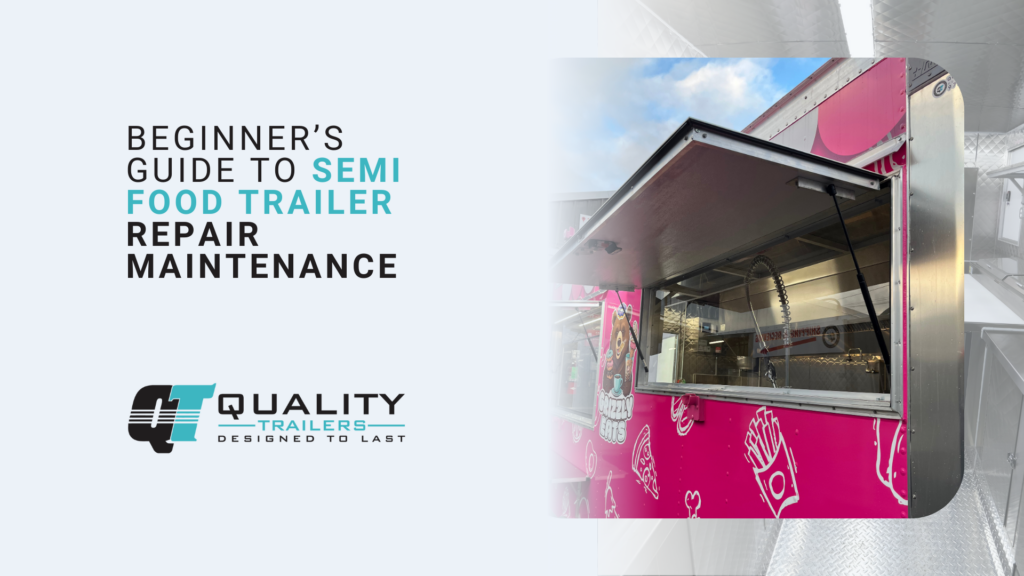
Starting a mobile food business requires more than just great recipes and customer service skills. Your semi food trailer represents a significant investment that demands proper care and attention to keep it running smoothly. Understanding the basics of repair and maintenance helps protect your investment while ensuring your trailer remains operational during peak business hours. […]
What Makes a Custom Built Concession Trailer Worth the Investment
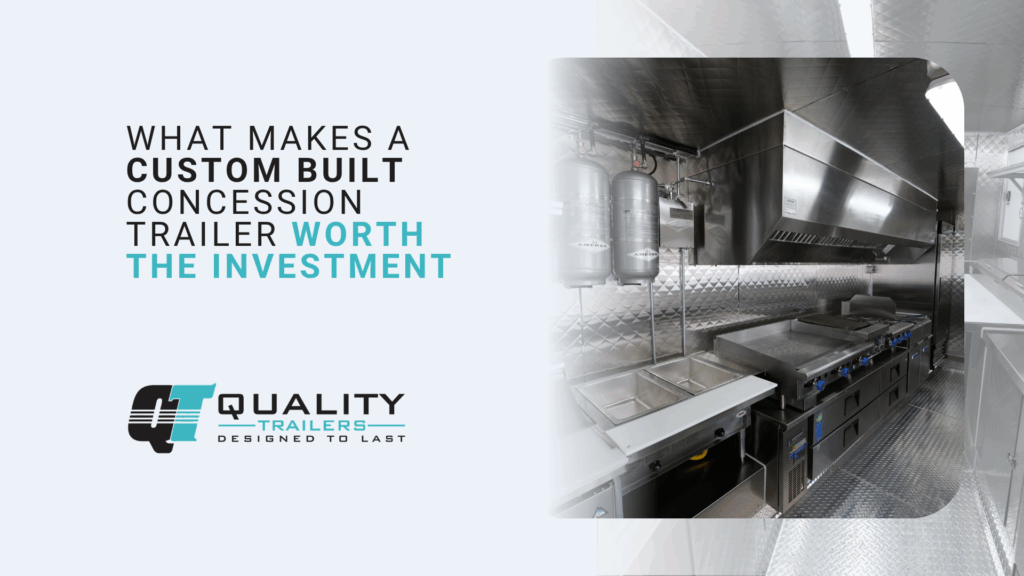
Starting a mobile food business represents an exciting entrepreneurial opportunity, but choosing between pre-made units and custom built concession trailers can feel overwhelming. Many aspiring food entrepreneurs wonder whether investing in a tailored mobile kitchen truly delivers long-term value or if a standard unit might suffice. This comprehensive guide explores the tangible benefits, financial considerations, […]
How Custom Food Carts Can Help You Start a Mobile Food Business
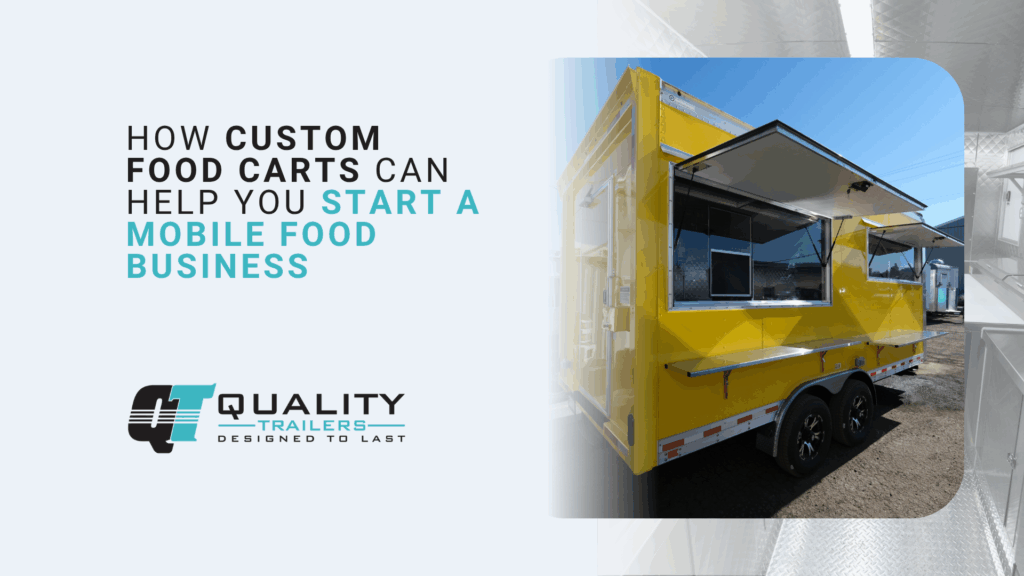
Starting a mobile food business has become an increasingly attractive option for aspiring entrepreneurs looking to break into the culinary industry. Custom food carts offer a unique opportunity to launch a food venture with lower overhead costs compared to traditional brick-and-mortar restaurants. These mobile units provide flexibility, mobility, and the ability to test different markets […]
Custom Food Truck Trailers vs. Standard Models: Which Is Right for You?
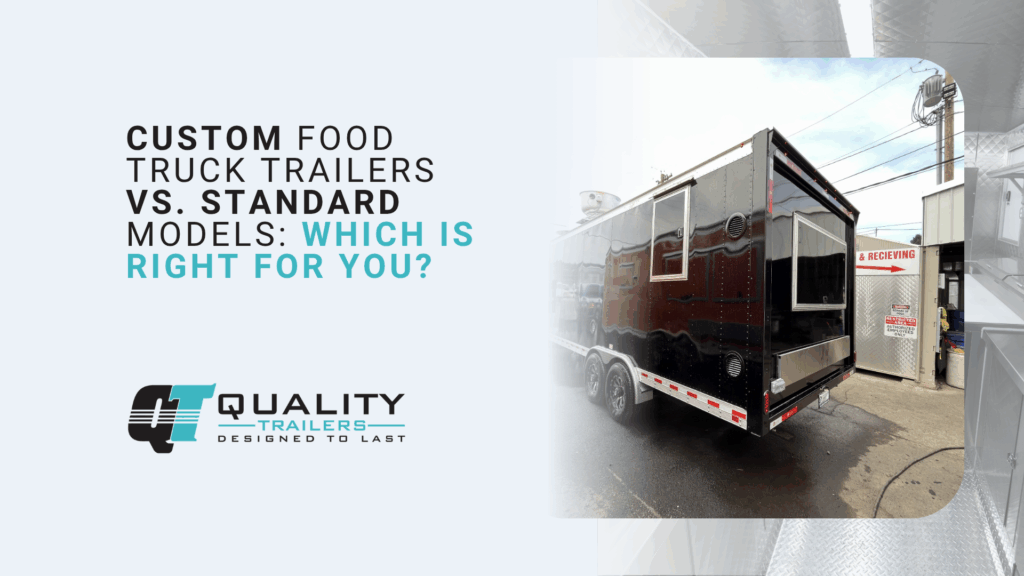
Starting a mobile food business is an exciting venture, but one of the most critical decisions you’ll make is choosing between a custom food truck trailer and a standard model. This choice will impact your daily operations, brand identity, budget, and long-term success. Understanding the differences between these two options can help you make an […]
How to Pick the Perfect Food Trailer Builder for Your Business
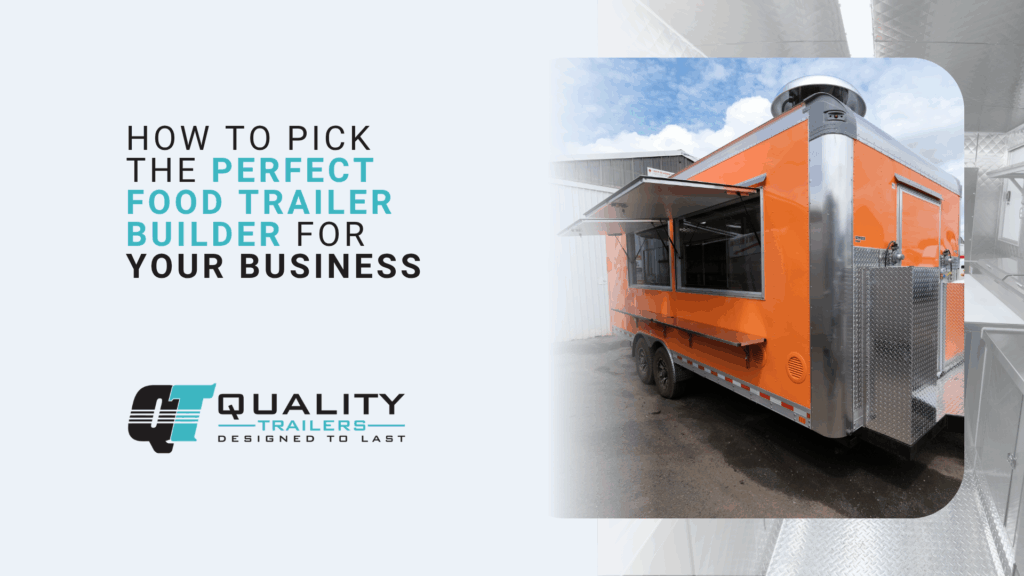
Starting a mobile food business represents an exciting entrepreneurial journey, but selecting the right partner to build your commercial kitchen on wheels can make or break your venture. The decision goes far beyond comparing price quotes; it involves evaluating expertise, understanding compliance requirements, and ensuring your builder can translate your culinary vision into a functional, […]
Legal Considerations for Food Trailer Customization
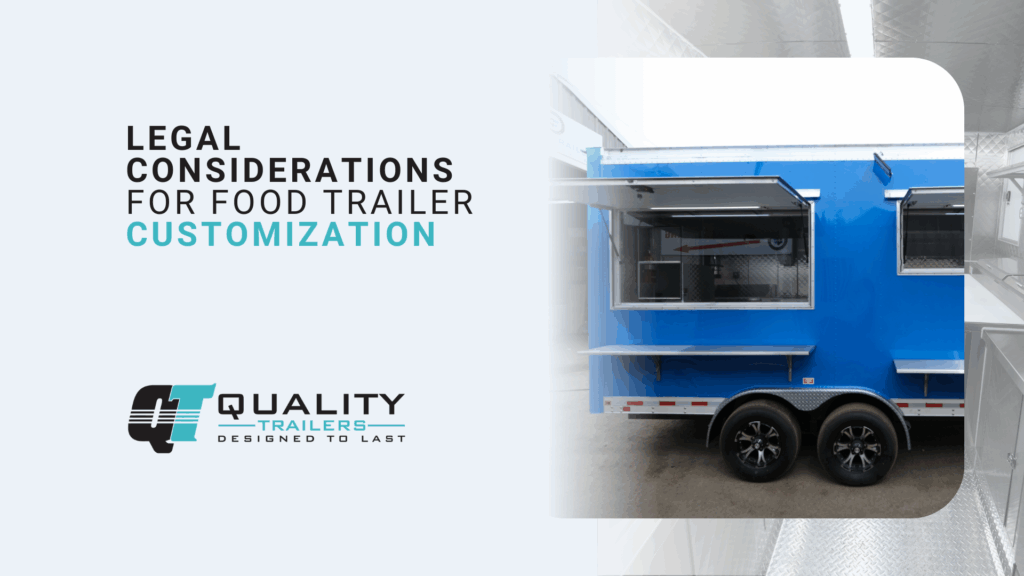
Navigating the legal landscape of food trailer customization requires understanding complex regulations that vary by jurisdiction and operational scope. Every food trailer custom build must comply with multiple layers of oversight, from federal food safety standards to local parking ordinances. These requirements significantly impact design decisions, equipment selection, and ultimately, your ability to operate profitably. […]
Building Quality Trailers That Create Profitable Food Businesses
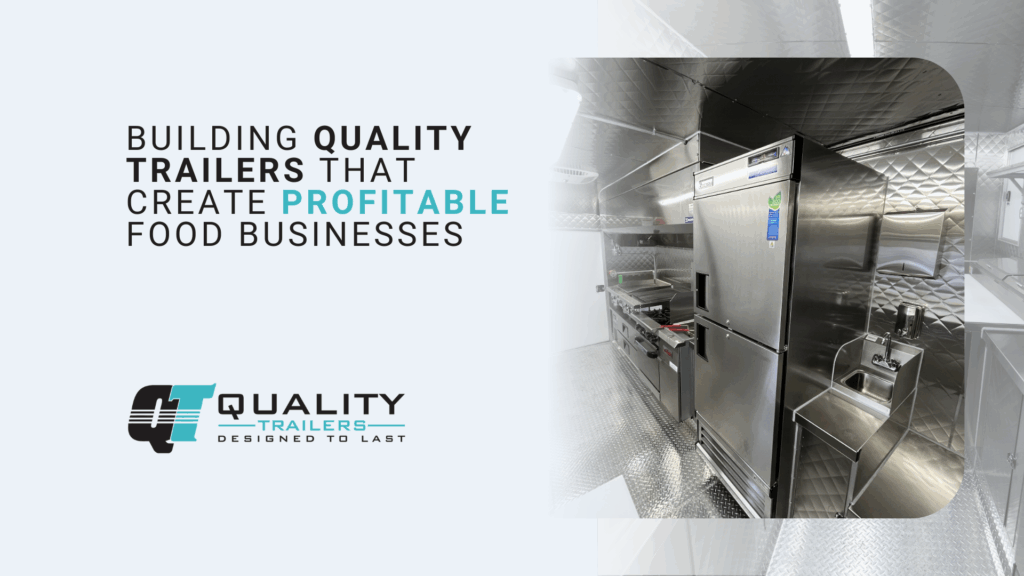
Starting a mobile food business requires careful planning, creativity, and most importantly, the right equipment. A quality food trailer built to your specifications serves as the foundation for successful food entrepreneurs across the country. These custom built mobile kitchens provide the perfect balance of functionality, mobility, and brand presence that can help transform culinary dreams […]
